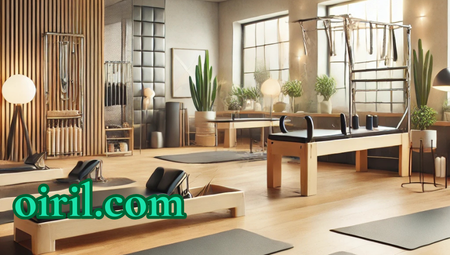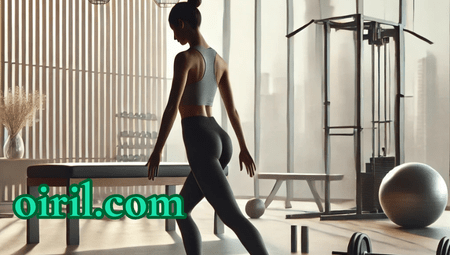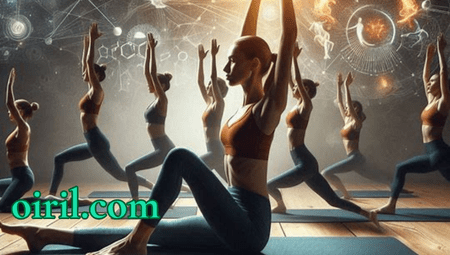Pilates Equipment What You Need to Know About the Reformer, Mat, and More
Pilates has gained popularity around the world as an effective method for improving flexibility, strength, and overall body awareness. While many associate Pilates with mat exercises, there is a diverse range of equipment that can enhance the experience and offer greater variety. From the versatile Reformer to specialized accessories like resistance rings and foam rollers, each piece of Pilates equipment serves a unique purpose. This article will guide you through the essential Pilates equipment, including the benefits, techniques, and how they contribute to a balanced, full-body workout.
The Reformer The Star of Pilates Equipment
The Reformer is often seen as the centerpiece of Pilates equipment, with its sliding carriage, adjustable springs, and pulleys. Developed by Joseph Pilates, the Reformer provides resistance and support, which can be adjusted according to the user’s skill level and needs.
Benefits of the Reformer
- Full-Body Engagement: Unlike mat exercises that rely primarily on body weight, the Reformer enables users to engage multiple muscle groups with resistance, offering a full-body workout.
- Adjustable Resistance: The springs allow for customized resistance levels, which means workouts can be as gentle or as intense as desired.
- Low-Impact Exercise: Ideal for people with joint issues, the Reformer offers a low-impact workout that helps build strength without putting pressure on joints.
Common Reformer Exercises
- Footwork Series: Helps warm up the legs and core.
- Leg Circles: Engages the hips and improves flexibility.
- Short Spine Massage: Stretches and strengthens the spine, beneficial for back health.
Pilates Mat The Foundation of Pilates Practice
The mat is the most accessible and commonly used piece of equipment in Pilates. Mat exercises can be performed at home, in a gym, or in a Pilates studio, making it an ideal choice for beginners and seasoned practitioners alike.
Benefits of Mat Pilates
- Core Strengthening: Mat exercises focus extensively on the core, helping to build a strong foundation that supports all movements.
- Flexibility and Mobility: Mat Pilates encourages stretching and mobility, which improves flexibility over time.
- Portable and Accessible: Unlike other equipment, the mat is easy to carry, requires little space, and can be used virtually anywhere.
Key Mat Exercises
- The Hundred: A warm-up exercise for breathing and core activation.
- Roll-Up: Aims to improve spine flexibility and strengthen the core.
- Leg Circles: Helps improve hip stability and core strength.
The Cadillac (Trapeze Table) For Advanced Pilates Training
The Cadillac, also known as the Trapeze Table, is a versatile piece of equipment that combines a horizontal mat with an overhead frame and various attachments like bars and springs. It is used mainly in Pilates studios and is known for its wide range of exercise possibilities.
Benefits of the Cadillac
- Postural Alignment: The Cadillac is excellent for stretching and postural work, as the springs provide assistance and resistance to guide movements.
- Assisted Movement: The bars and springs allow for supported stretching and strength exercises, making it suitable for beginners and individuals recovering from injury.
- Advanced Exercises: Allows for unique movements not possible on other equipment, including inverted exercises and stretches.
Common Cadillac Exercises
- Push-Through Series: Engages the arms and core, improving shoulder stability.
- Leg Springs Series: Focuses on leg strength and alignment.
- Inversion Work: Strengthens the core and challenges balance in a safe environment.
Pilates Chair Compact Yet Challenging
The Pilates Chair, also known as the Wunda Chair, is a compact piece of equipment that combines a padded seat with springs and pedals. This equipment is great for developing balance, coordination, and strength, especially in the legs and core.
Benefits of the Pilates Chair
- Balance and Stability: The unstable nature of the chair requires users to engage their core and maintain stability.
- Strength Building: With resistance springs, the chair enables targeted muscle engagement, especially in the lower body.
- Versatile Movements: The compact size of the chair makes it ideal for home use, and it can be used to perform a wide range of exercises.
Popular Chair Exercises
- Mountain Climber: Works the core, shoulders, and legs while challenging balance.
- Step-Ups: Strengthens the legs and glutes.
- One-Leg Stretch: Focuses on stability and control in the legs and core.
Pilates Barrel Supporting Spine Flexibility
The Pilates Barrel, or Spine Corrector, is a unique piece of equipment designed to support the spine and aid in improving flexibility. With its curved shape, the barrel provides a unique surface for exercises targeting spinal mobility and strength.
Benefits of the Pilates Barrel
- Improved Spinal Mobility: The curved surface encourages deep stretching and spinal extension, which helps relieve tension in the back.
- Core and Back Strengthening: Many exercises on the barrel focus on the core and back, promoting balanced strength.
- Posture Correction: The barrel is particularly helpful for those with posture issues, as it encourages alignment.
Common Barrel Exercises
- Back Extension: Stretches and strengthens the back muscles, promoting spine flexibility.
- Side Bends: Targets the obliques and improves side-to-side mobility.
- Hamstring Stretches: Enhances leg flexibility while supporting the spine.
Small Pilates Equipment and Accessories
In addition to the larger pieces of equipment, Pilates also incorporates various smaller accessories to intensify workouts and offer more variety.
Resistance Bands
Resistance bands are commonly used in Pilates to add extra resistance to exercises. They are lightweight, portable, and perfect for targeting specific muscles in the arms, legs, and core.
Foam Rollers
Foam rollers are used in Pilates for muscle release, flexibility work, and balance exercises. They can be incorporated into warm-up routines or used to deepen stretches.
Magic Circle (Pilates Ring)
The Magic Circle is a flexible ring with handles on both sides, typically used to add resistance in arm and leg exercises. It helps engage the inner thighs, arms, and core.
Stability Ball
The stability ball offers an unstable surface, which requires users to engage their core muscles. It’s often used for balance and core strengthening exercises.
Weighted Balls
Weighted balls add an extra level of resistance, helping to build strength in the arms, shoulders, and core.
Choosing the Right Equipment for Your Pilates Practice
With so many options, choosing the right Pilates equipment can be overwhelming. Here are a few tips to consider when selecting equipment:
- Beginner or Advanced: Beginners may want to start with a mat, Magic Circle, and resistance bands before progressing to equipment like the Reformer or Cadillac.
- Personal Goals: If you want to focus on flexibility and posture, the barrel might be ideal. For full-body strength training, the Reformer or Chair may be better suited.
- Space and Budget: Consider your available space and budget. Mats and small accessories are more affordable and take up less space, while larger equipment like the Reformer requires both an investment and space.
Pilates equipment provides endless possibilities for enhancing strength, flexibility, and mind-body connection. Each piece, from the Reformer to the foam roller, serves a unique purpose, offering options for people of all fitness levels and goals. By incorporating a mix of these tools into your practice, you can enjoy the diverse benefits of Pilates and create a well-rounded routine that suits your needs. Whether you’re working out at home or in a studio, investing in the right Pilates equipment can transform your practice and lead you to new levels of fitness and body awareness.





